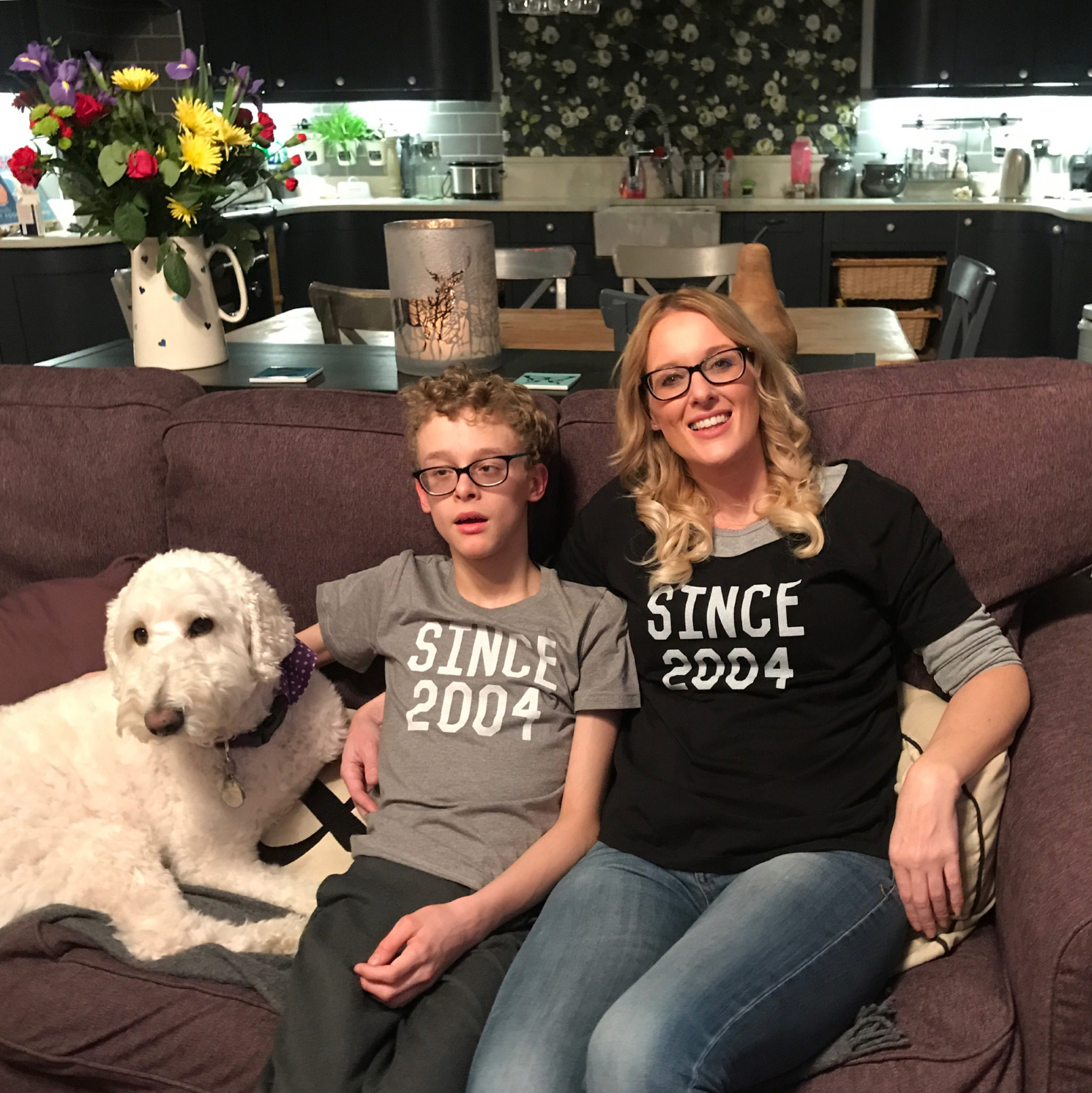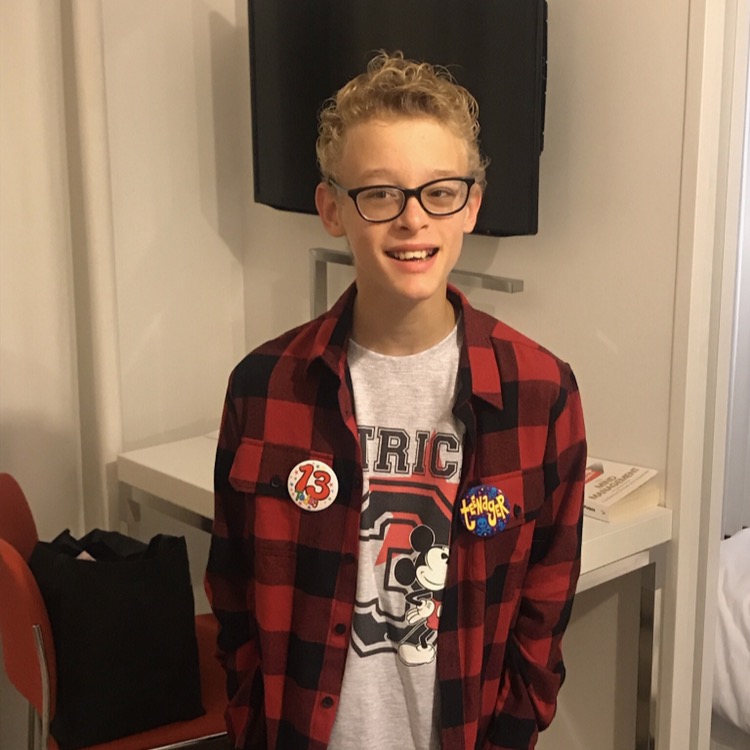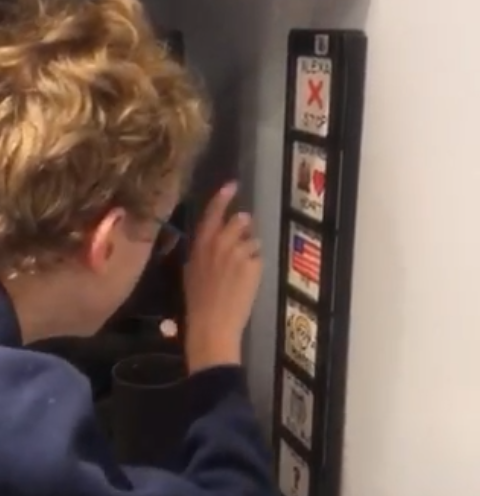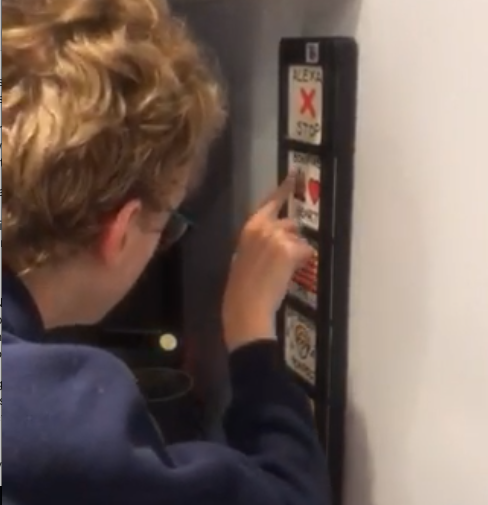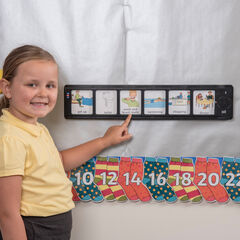Paddy’s challenges started when he was born 11 weeks early, very underweight and very poorly with a bowel condition requiring multiple surgeries. During this time he suffered a cardiac arrest which caused a lack of oxygen brain injury in the visual processing area of his brain, leaving him with learning difficulties, cerebral palsy and needing to be registered blind.
As a naturally anxious baby and child, growing up, Paddy always found his calm in music. The screens that attract and entertain so many other children such as TVs and iPads are of very little interest to him and instead he will spend his time twirling around on his indoor swing, whooping along to anything from Little Mix to Sir-Mix-a-lot. As he developed speech, he was able to let us know which songs he wanted to listen to but due to his poor vision, difficulties with hand-eye co-ordinations and inability to read, selecting or skipping through tracks on either an iPad or cd player was too tricky for him.
Paddy has recently become a teenager and his frustrations with his lack of independence are growing. In an attempt to solve our music selection challenges, I thought I had hit upon a solution by getting Paddy an amazon echo device. We are lucky that Paddy has developed speech, as quite often children with his type of brain injury do not, and my hopes were that he would be able to independently program ‘Alexa’ using his voice. Unfortunately, this was not the case. Despite trying incredibly hard and amazing me with his patience, Paddy’s speech was not clear enough to be reliably understood by ‘Alexa’. He has a stammer and often, on maybe his 10th attempt when he would manage to make his request in the correct order without stammering, Alexa would miss-hear him, so giving him no reward for his efforts – it was heartbreaking.
Having previously worked as a Special Needs Co-ordinator in primary schools, I was used to thinking around problems to remove the barriers to learning for children at school. We had a recordable talking wall panel from TTS in our hallway that Paddy used as a way to prompt him through his ‘leaving the house routine’. It had become a bit redundant recently as Paddy’s anxieties over this issue had settled. I realised that if I recorded some Alexa prompts loudly and clearly onto each the six buttons and repositioned it close to Paddy’s Echo that it might provide a solution. I quickly set to work recording the prompts and drew some basic pictures and words that Paddy would be able to see and understand. It really was the simplest solution – but it worked!
At age 13, Paddy is able to select a song independently for the first time ever. His initial reaction was fantastic – instantly happy and excited that he could finally get his new music player to work. Home life often involves constantly having to occupy Paddy because of his short attention span and high levels of anxiety. Being able to independently access music, has not only kept him occupied, which is great for me, but has also provided him with extended periods of calm relaxation. The longer lasting effects on Paddy have been quite profound too. He has become less frustrated and more confident and has begun to attempt some daily tasks independently, rather than passively accepting help and his resilience when things go wrong has also improved.
We are currently trying out different devices to give him more music choices and are looking for a solution within the car too – something I know I may live to regret!
View the range of recordable talking resources here
With thanks to Katy Monk and Paddy for this blog post.


